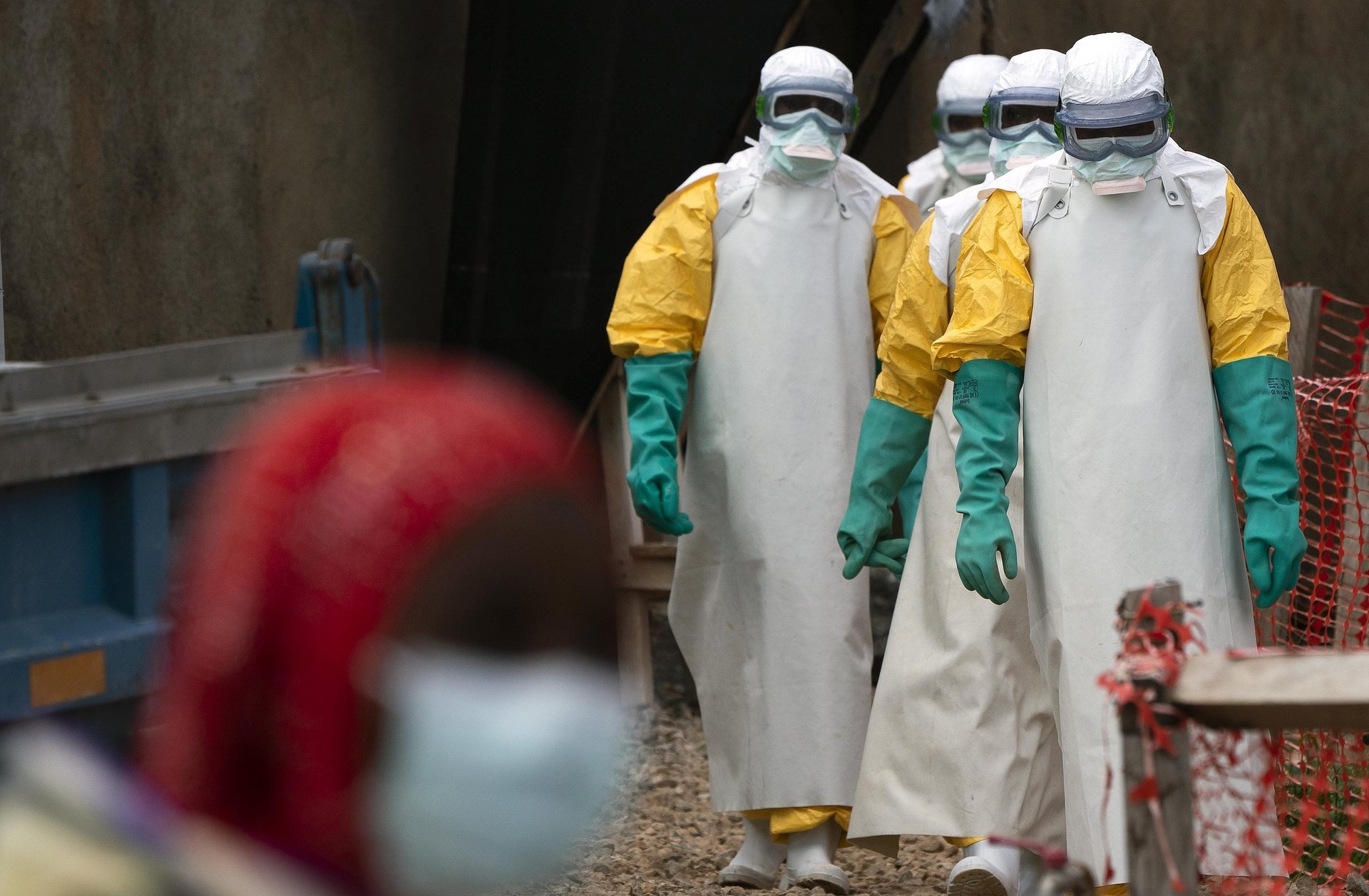The WHO could use an Ebola study as a model for coronavirus treatment
On Wednesday (March 18), the director of the World Health Organization (WHO) announced a large-scale clinical trial effort to find treatments for Covid-19.


On Wednesday (March 18), the director of the World Health Organization (WHO) announced a large-scale clinical trial effort to find treatments for Covid-19.
The study, dubbed the SOLIDARITY trial, tests the efficacy of four drugs—remdesivir, lopinavir and ritonavir, lopinavir and ritonavir plus interferon beta, and chloroquine—already in use to combat other kinds of viruses. At least 10 countries will participate in the trial, though the WHO has not yet stated how many patients will be enrolled, the procedures for the study, nor when the trial might start.
It’s not the first time that the WHO has conducted such a complex trial in the middle of an outbreak, however. In Nov. 2018, it kicked off a study of four drugs thought to treat Ebola, which was ravaging communities in the Democratic Republic of Congo (DRC). The study, called PALM, enrolled 681 patients in 10 months, at which point the study organizers ended the trial. Two treatments—the antibody cocktail REGN-EB3 and mAb114, a monoclonal antibody—were clearly able to reduce the number of people who died of the disease.
Getting to this point was not simple. Hundreds of people, from international healthcare organizations (such as the WHO and Doctors without Borders) to the DRC’s National Biomedical Research Institute and four different drug manufacturers, worked to make it happen.
“That collaboration is unprecedented, and that’s the reason this trial was successful. It brought together different groups with different skill sets,” says Adam C. Levine, the director of the Center for Human Rights and Humanitarian Studies at Brown University who worked on the trial as a representative of the International Medical Corps (IMC).
How does someone start organizing an effort like this? The first step is to get the complex legal and data-sharing agreements in place for all the organizations involved, from the pharmaceutical companies supplying the treatments, to the humanitarian organizations and health ministries actually treating patients, down to the biostatisticians analyzing the data. Study investigators had learned from a previous Ebola treatment study in Sierra Leone that had failed to show a clearly effective treatment, so they were able to set this up in only a few months, Levine says.
Then it’s time to hammer out the logistics. That requires a steering committee made up of representatives of all the organizations involved, who weigh in on decisions like what to say to media and what happens when supplies run short. For the PALM trial, that steering committee was about 12 people, Levine says. (A separate committee, the data safety and monitoring board, looked at the data independently and decided when to stop the trial.)
“Carrying out a randomized control trial is incredibly logistically intensive. In low-resource settings, it’s even greater,” he says. The IMC, where Levine worked, was running one of the four treatment centers where the trial was taking place. “We had a 110-point checklist before we could even start the study,” he says. “Some things on there are obvious maybe, like having enough doses of the different trial drugs, and having a certain number of doctors, nurses, and pharmacists on hand, and having people complete training.” But there were also things that may not come immediately to mind that they had to take into account, he says, like refrigerators, equipment to test the temperature of those refrigerators, having generators and backup generators for the refrigerators and freezers, and data equipment and tools to transfer results at the end of each day.
The Covid-19 trial may be easier to pull off because most of the countries that have already signed up are higher-resource settings, where a stable power supply and ample refrigeration are more common.
And if investigators are looking to show that a treatment can reduce the number of people who die from SARS-CoV-2, they will need to enrol likely thousands of patients, many more than in the PALM trial, since the disease is less deadly than Ebola. This, too, may be fairly simple: “With Covid-19, how fast the studies go will depend on how many patients are in the study. That’s hard to predict now, but all accounts suggest there will be plenty,” Levine explains.
But other aspects of WHO’s Covid-19 trial might be more complex, like the number of governments it’ll have to coordinate with, he adds. “You need to set up a clear governance structure for something like this.”
This sounds like a lot of headache, but if all goes well, it results in a treatment that could save many lives. “We have no idea which [treatments] are going got work. If you had asked me at the beginning of PALM which would prove to be most effective, I would have been totally wrong,” Levine says.